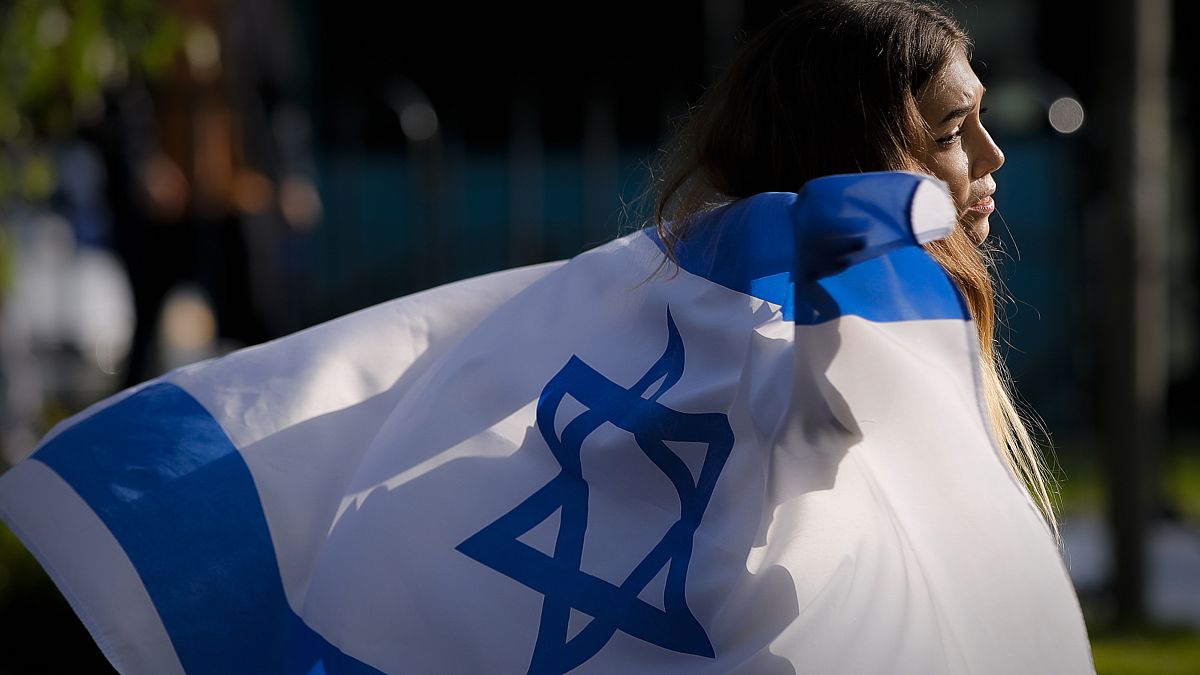"Israel is, right now, in need of friends from Europe," said Walid Abu-Haya, deputy head of Israel's mission to the EU.
Israel is expecting the European Union's foreign ministers to denounce Hamas when they meet on Tuesday for an extraordinary meeting to discuss the conflict.
That's according to Walid Abu-Haya, deputy head of Israel's mission to the EU.
He was speaking after Israel launched pre-dawn airstrikes targeting the homes of Hamas commanders.
At least 200 Palestinians have been killed in the strikes as of Monday, including 59 children and 35 women, with 1,300 people wounded, according to the Gaza Health Ministry. In Israel, 9 people have lost their lives, with more than 500 wounded. Additional casualties have been recorded in the West Bank and East Jerusalem.
"Israel is an ally to Europe," Abu-Haya told Euronews. "Israel shares values with Europe [and] has history with Europe. Israel is, right now, in need of friends from Europe. And we have many friends in Europe. Israel needs Europe to denounce very clearly and strongly Hamas. Hamas is a terrorist organisation, according to Europe. Europe has to stand with Israel."
Abu-Haya's comments come after the conflict's deadliest day in Gaza, as Israeli strikes on Sunday destroyed three buildings and killed at least 42 people.
On Saturday, an Israeli attack destroyed a high-rise building in Gaza City that housed offices of multiple media outlets, including the Associated Press and Al-Jazeera. The incident has already been condemned by the European Union.
"Our military operation against Hamas operatives and infrastructure will continue until we reach an end to their launching of missiles on Israeli civilians and until reaching a will from Hamas leadership to stop these terrorist attacks," Abu-Haya said.
"We will go on with our operations against Hamas militants and Hamas infrastructure until we reach an end to this nightmare."
Asked about the growing death toll of civilians inside the Gaza strip, Abu-Haya said the Israel Defence Forces (IDF) were exercising "maximum restrain".
"We regret if there are any casualties amongst civilians. We have a very moral military and we are following rules, very strict rules," he said.
'Netanyahu is not interested in a two-state solution'
Evin Incir, a socialist MEP from Sweden who currently serves as vice-chair of the parliament's delegation for relations with Palestine, thinks the interests of both Hamas and Israeli Prime Minister Benjamin Netanyahu are taking priority over the well-being of ordinary citizens.
"The current violence, escalation of violence is mainly a conflict between Hamas and between Israeli authorities, with Netanyahu leading it, and they get support from different places," Incir told Euronews.
"If we look at who are the winners in this conflict, there are two sides: Netanyahu and Hamas. But the losers are so many more: it is the people, the people in Palestine, the people living in Israel."
Incir believes the political situation inside Israel is playing a role in the new escalation of violence. After four inconclusive parliamentary elections in a row, the country still doesn't have a new government and a fifth poll looks increasingly likely.
Netanyahu recently failed to form a coalition, leading the Israeli president to ask Yasir Lapid, the leader of the centrist Yesh Atid party, to give it a try. If Lapid succeeds, he will put an end to Netanyahu's premiership, the longest ever in the history of Israel.
"Netanyahu has long time shown that he's not interested in a two-state solution, he's not interested in peace, and therefore the daily annexation, the expansion of the settlements has been going on for long," Incir says.
"But the latest escalation of violence, where also Netanyahu has been contributing to it, is showing that he has an interest in not solving the current situation immediately because of political electoral reasons in the middle of the formation of governments in Israel. And settlers play a key role for Netanyahu and him being able to continue."
Abu-Haya denied any electoral reasoning is influencing the ongoing conflict.
Beyond the political intricacies of Israel and Gaza, Incir fears one of the region's most dominant figures, Turkish President Recep Tayyip Erdoğan, might be interested in benefiting from the crisis.
"Turkey, with Erdoğan as the head of state, has, of course, interests in Israel and Palestine, but it also interests in the region at large. And Erdoğan hasn't lost his dream of leading a new modern type of Ottoman Empire. He has shown it in other conflicts. He's in Libya. He's been Nagorno-Karabakh and many other places," the MEP says.
"Unfortunately, what is guiding Erdoğan is not the solution to the current situation, but rather his own interest to take leadership in the whole Middle East."
